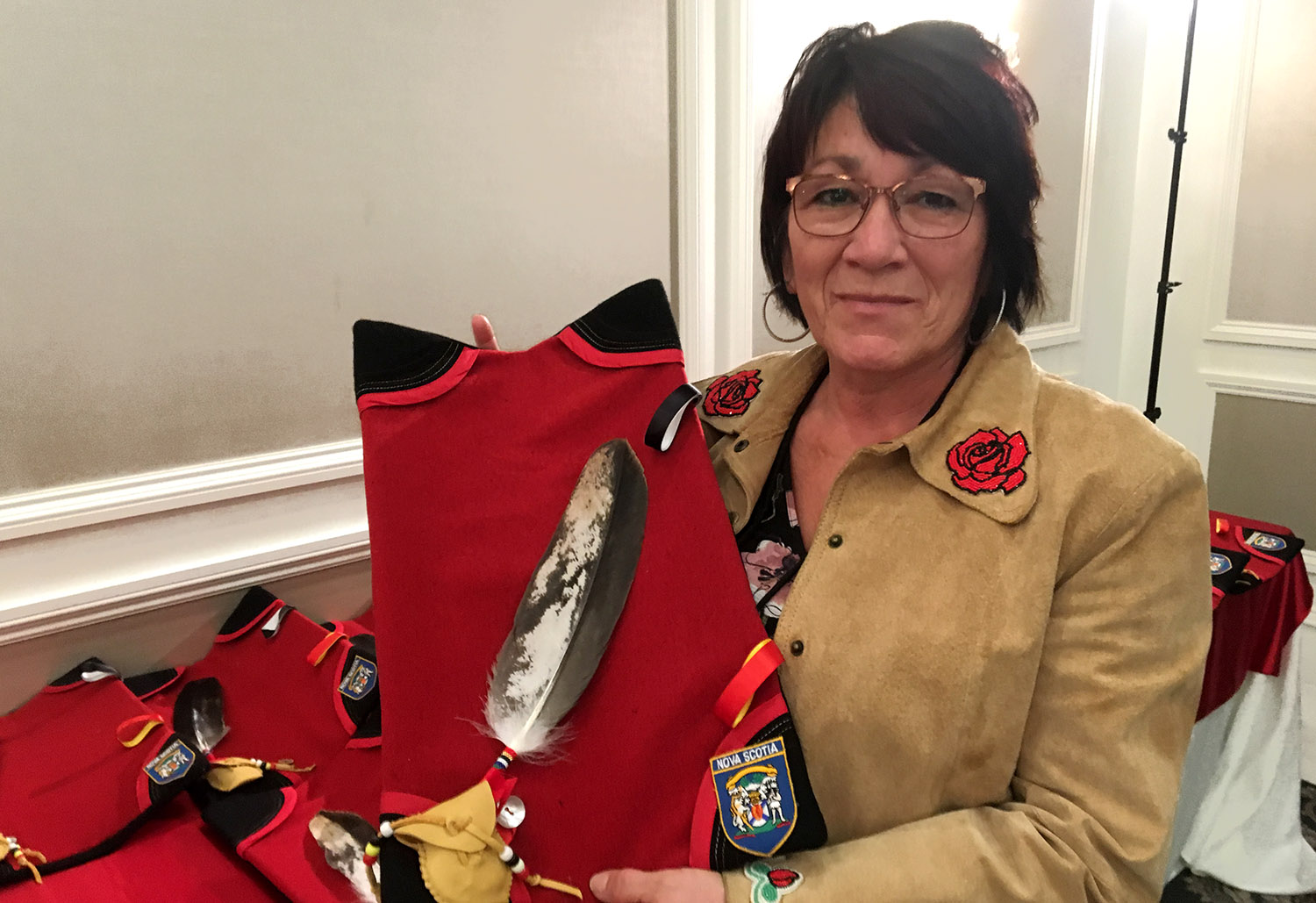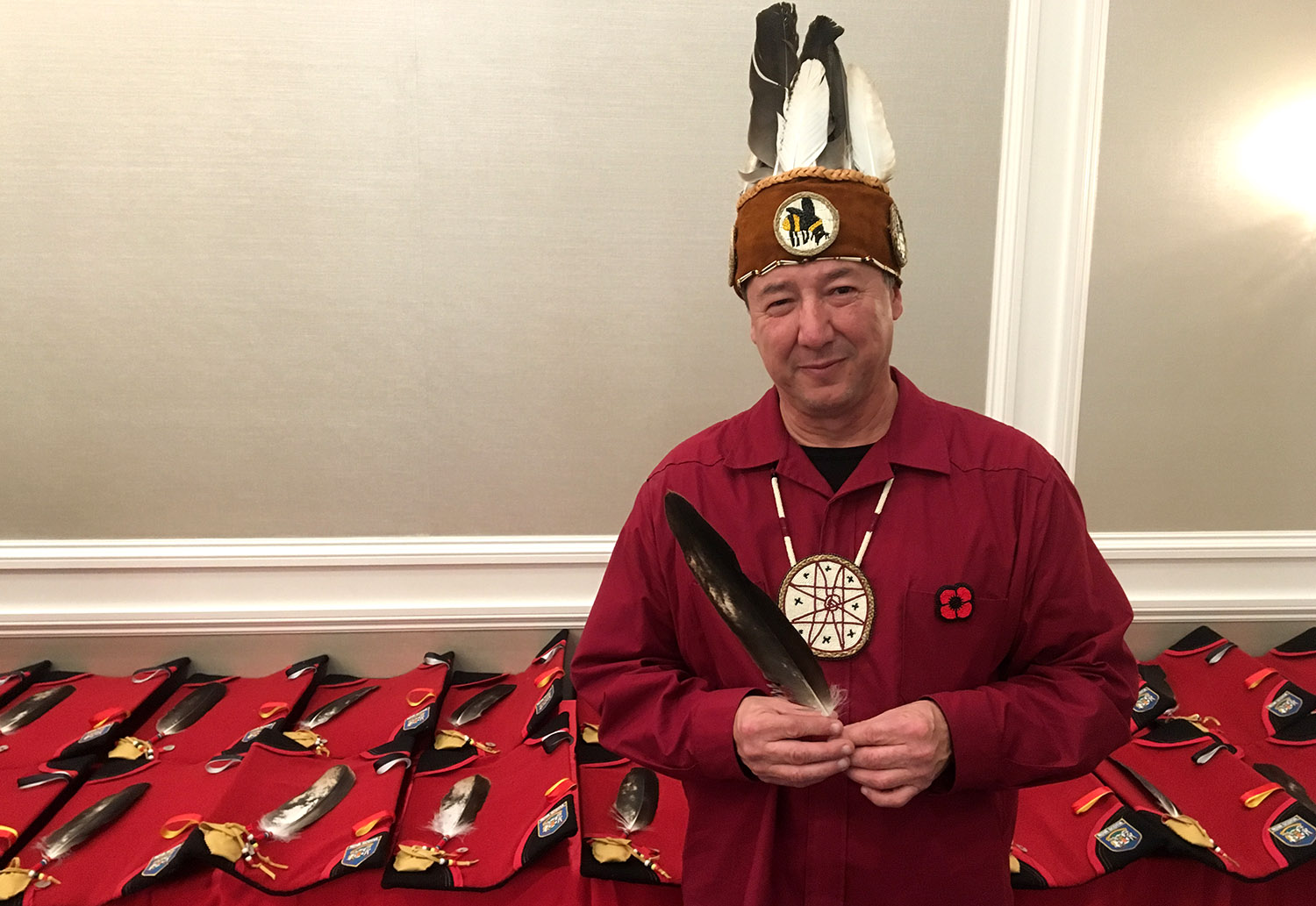Mi'kmaq Law
Nova Scotia courts get 33 eagle feathers for oath swearing
Eagle feathers were decorated with hours of bead work before they were given to N.S. courts

caption
Rose Michael shows off her work. She spent two weeks beading the quills of these eagle feathers.Thirty-three ceremonial eagle feathers were bestowed to the Nova Scotia courts on Thursday. Rose Michael was given the task of beading each one and is proud to hand them over after all her hard work.
“It’s awesome,” she said looking at the feathers at the official unveiling in the Imperial Ballroom of the Lord Nelson Hotel in Halifax. She spent two weeks, from morning to night, on the project.
The feathers will serve as an alternative to the Bible for those required to swear under oath. Having them available is part of the reconciliation process with Indigenous peoples in Canada.
“We consider ourselves progressive, but we’ve got a past,” said Chief Justice Joseph Kennedy. “This day is about making it better.”
Thursday’s ceremony began with six women singing and drumming a Mi’kmaq song of honour, followed by a smudging ceremony.
Chief Paul Prosper of Paqtnkek First Nation, justice lead for the Assembly of Nova Scotia Mi’kmaq Chiefs, spoke at the event. He told the story of Gitpu, an eagle, who is a messenger for the Great Spirit, Kisulkw.
“The eagle feather is a symbol intended to remind us of our connection to a greater power,” said Prosper.

caption
Chief Paul J. Prosper holds one of the 33 eagle feathers destined for N.S. courts.During his speech, Prosper talked about an acquaintance who had gone to the police with a complaint but the case was not pursued because she would not swear upon the Bible. The woman returned to the police holding an eagle feather the next day to tell her story.
“All experiences are a gift … and it is within our heart space that we can create a bridge between our ways of thinking,” Prosper said.
He called the use of eagle feathers in court an historic event.
“We are instructed to remember our roles as human beings,” he said.
Over 50 provincial RCMP detachments have also been given ceremonial feathers to use during official statements.


D
David Wilkie
T
Tanis Wilkie
D
Dylan Coutts